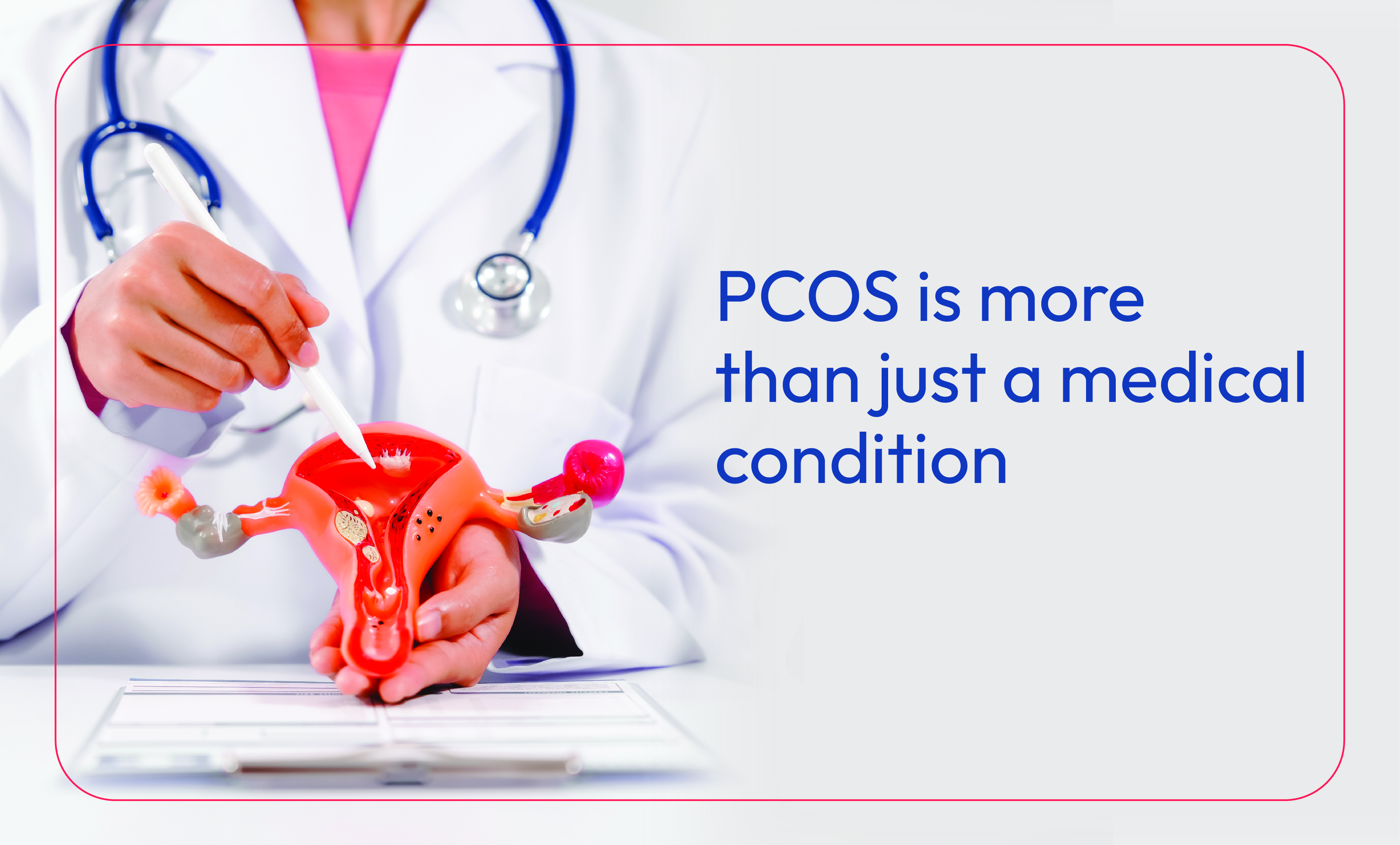
Polycystic Ovary Syndrome (PCOS) is a common condition that affects many women worldwide, yet it remains widely misunderstood. Often perceived solely through a medical lens, PCOS is more than just a set of symptoms or a diagnosis. It is a complex and multifaceted condition that intertwines with a woman's physical health, emotional well-being, lifestyle, and identity.
PCOS is a hormonal disorder that primarily affects women of reproductive age. It is characterized by irregular menstrual cycles, elevated levels of male hormones (androgens), and the presence of multiple small cysts on the ovaries. These symptoms can vary widely among individuals and may include:
While these symptoms are well-documented, PCOS encompasses more than just these clinical signs. Its effects ripple through many areas of a woman's life, influencing her physical health, mental well-being, and daily experiences.
PCOS can significantly affect a woman's body image and self-esteem. Symptoms like hirsutism, acne, and weight gain can lead to feelings of self-consciousness and diminished self-worth. Women with PCOS may find themselves preoccupied with their appearance, which can affect their confidence and how they interact with others.
The emotional toll of PCOS can extend to mental health issues such as anxiety and depression. The stress of managing chronic symptoms, dealing with infertility, and facing societal pressures about appearance can contribute to these conditions. It is crucial for women with PCOS to seek support and counseling to address their mental health needs and to develop coping strategies.
Managing PCOS often involves making significant lifestyle changes. A balanced diet and regular exercise can help manage symptoms and reduce the risk of related conditions like type 2 diabetes. However, the journey to adopting and maintaining these changes can be challenging. Women with PCOS may need to work with nutritionists and fitness experts to develop personalized plans that fit their needs and preferences.
PCOS can also affect a woman's social and professional life. Concerns about appearance and fertility can lead to avoidance of social situations or professional opportunities. Additionally, the need for ongoing medical appointments and treatments can impact work and personal schedules. Finding a balance between managing PCOS and maintaining a fulfilling social and professional life is an ongoing challenge for many women.
PCOS can affect relationships, particularly with partners and family members. The challenges of managing a chronic condition and dealing with fertility issues can strain relationships. Open communication and mutual support are essential in navigating these challenges and ensuring that both partners understand and address the emotional and practical aspects of PCOS.
For women with PCOS who are considering or already have children, there may be additional concerns and considerations. Navigating pregnancy with PCOS may involve special medical care, and the ongoing management of PCOS symptoms can influence parenting experiences. Support from healthcare providers, family, and friends is vital in ensuring a positive and healthy parenting journey.
An essential aspect of managing PCOS is seeking comprehensive medical care. This includes working with healthcare providers who understand the multifaceted nature of PCOS and can provide personalized treatment plans. Regular monitoring and adjustments to treatment can help manage symptoms and improve overall quality of life.
Connecting with others who have PCOS can provide valuable support and understanding. Support groups, both in-person and online, can offer a sense of community and shared experience. These networks can be a source of practical advice, emotional support, and encouragement.
Increasing awareness and education about PCOS is crucial in empowering women to manage their condition effectively. Understanding the various aspects of PCOS and how it impacts different areas of life can help women make informed decisions and advocate for their needs.
A holistic approach to managing PCOS involves addressing the physical, emotional, and lifestyle aspects of the condition. This includes incorporating medical care, self-care practices, lifestyle modifications, and emotional support. By adopting a comprehensive approach, women with PCOS can improve their overall well-being and quality of life.
PCOS is more than just a medical condition; it is a complex and multifaceted experience that impacts various aspects of a woman's life. From physical symptoms to emotional challenges, lifestyle adjustments, and relationship dynamics, PCOS weaves through many dimensions of daily living. Understanding and addressing these diverse impacts are essential in providing holistic care and support for women with PCOS. By embracing a comprehensive approach, women can navigate the challenges of PCOS and work towards a fulfilling and balanced life.
Dr. Shreya Sharma is a renowned endocrinologist based in Dehradun, known for her expertise in treating various hormonal disorders. With extensive experience in managing conditions such as diabetes, PCOS, she provides comprehensive and personalized care to her patients. Dr. Sharma is highly regarded for her patient-centric approach, focusing on education and prevention, and is dedicated to helping patients achieve optimal health through effective management and treatment of endocrine disorders.